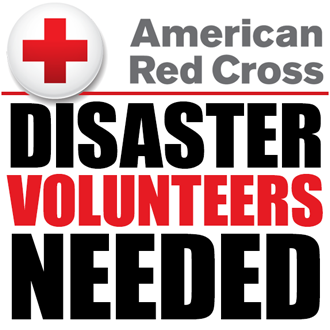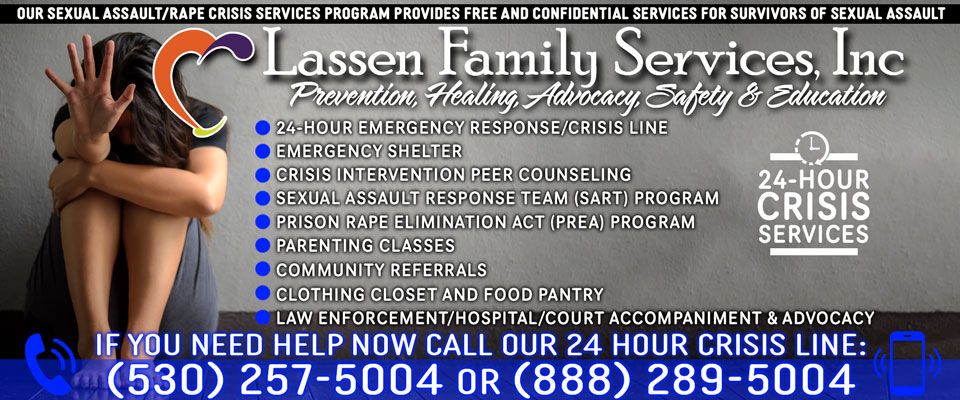
Special to SusanvilleStuff
By Kimberly Baca
Lassen County Red Cross Disaster Program Manager
Natural and human-caused disasters can strike communities with little warning, leaving devastation in their wake. The American Red Cross plays a crucial role in disaster management, ensuring resources are positioned in a timely manner, and providing a full range of support for those impacted.
As a Disaster Program Manager serving Lassen, Shasta, Modoc, and Siskiyou counties, it is my job to help with these efforts.
With a rich history dating back to its founding in 1881, the Red Cross has consistently provided assistance to communities in times of crisis. I’d like to explain the multifaceted role of the Red Cross in disaster preparedness, response, and recovery, as well as how students can gain valuable experience within the organization to prepare for public service careers.
Disaster Preparedness: Preparedness is the cornerstone of effective disaster management, and the Red Cross is a pioneer in this area. We conduct extensive training and education programs designed to empower individuals and communities to be ready for emergencies. Their initiatives include:
CPR and First Aid Training: The Red Cross offers comprehensive training in cardiopulmonary resuscitation (CPR) and first aid, equipping individuals with life-saving skills that can be invaluable during disasters.
Disaster Preparedness Courses: Through programs like “Prepare with Pedro” for children and “Prepare Out Loud” for adults, we educate the public about disaster preparedness, emphasizing the importance of emergency kits, evacuation plans, and communication strategies.
Community Disaster Education: The Red Cross collaborates with local communities to provide disaster education workshops, ensuring residents are informed about potential risks and know how to mitigate them.
Blood Services: Blood donations are vital during emergencies. The Red Cross maintains a robust blood donation program, which helps ensure a stable blood supply, especially during disasters. Visit redcrossbloodd.org for information.
Shelter Preparation: The organization sets up and manages emergency shelters, which serve as crucial hubs for disaster response. They pre-position supplies and train volunteers to staff these shelters during emergencies.
Disaster Response: When disaster strikes, Red Cross volunteers spring into action. Their immediate response efforts are comprehensive and multifaceted, demonstrating their commitment to alleviating human suffering. Key elements of their disaster response include:
Emergency Sheltering: The Red Cross operates shelters to provide refuge for those displaced by disasters, offering not only a safe place to stay but also food, medical assistance, and emotional support.
Mass Care and Feeding: The organization mobilizes volunteers and resources to provide meals and basic necessities to disaster-affected communities. This is often done through mobile feeding units and fixed feeding sites.
Disaster Health Services: Trained volunteers, including nurses and mental health professionals, offer medical and emotional support to survivors, addressing immediate and long-term health needs.
Disaster Assessment: We assess the impact of disasters, helping coordinate a more effective response by identifying the most pressing needs of affected communities.
Emergency Communications: The organization plays a critical role in reconnecting families separated by disasters through the Restoring Family Links program, utilizing a global network to facilitate communication.
Disaster Recovery: The Red Cross recognizes that disaster recovery is a complex, long-term process. Their involvement extends beyond the initial response phase, and they engage in various activities to aid in the recovery of affected communities, such as:
Financial Assistance: Through their financial assistance programs, the American Red Cross provides immediate relief to disaster survivors, enabling them to cover essential needs like food, clothing, and temporary housing.
Recovery Planning: The organization works with communities to develop recovery plans, emphasizing resilience and sustainability, and assists in rebuilding homes and infrastructure.
Mental Health Support: Long after the disaster, the Red Cross continues to offer mental health services, recognizing that the emotional scars of a disaster can persist for years.
Community Partnerships: Collaborating with local government agencies, nonprofits, and other organizations, the Red Cross helps foster a unified and effective approach to long-term recovery.
Student Engagement and Public Service Careers: For students interested in public service careers, gaining experience with the Red Cross can be invaluable. The organization offers numerous opportunities for students to get involved and develop essential skills:
Volunteer Roles: Students can become disaster response volunteers, working in various capacities such as shelter management, disaster assessment, or health services. These experiences offer practical, hands-on training in crisis management.
Internships: The Red Cross often provides internship programs in fields like emergency management, public health, communications, and social work. These internships offer exposure to the organization’s operations and provide valuable real-world experience.
Youth Programs: Younger students can participate in youth-oriented programs like the Red Cross Youth Clubs, where they learn leadership, disaster preparedness, and community engagement.
Leadership Development: The Red Cross nurtures leadership skills through its programs, allowing students to take on progressively responsible roles, preparing them for careers in public service and emergency management.
Networking Opportunities: Engaging with the Red Cross allows students to build a professional network within the disaster management and public service sectors, opening doors to future career opportunities.
The Red Cross is an indispensable organization in the realm of disaster management, with a well-rounded approach that encompasses preparedness, response, and recovery.
Students aspiring to public service careers can find numerous pathways to gain experience within the organization, building skills and knowledge that will prepare them for impactful roles in emergency management, public health, and humanitarian assistance.
By understanding and engaging with the Red Cross, these future leaders can contribute significantly to the resilience and well-being of their communities in times of crisis.
If you are interested in volunteering or working with the Red Cross, please visit redcross.org/volunteer and redcross.org/careers or call 1-800-733-2767.







